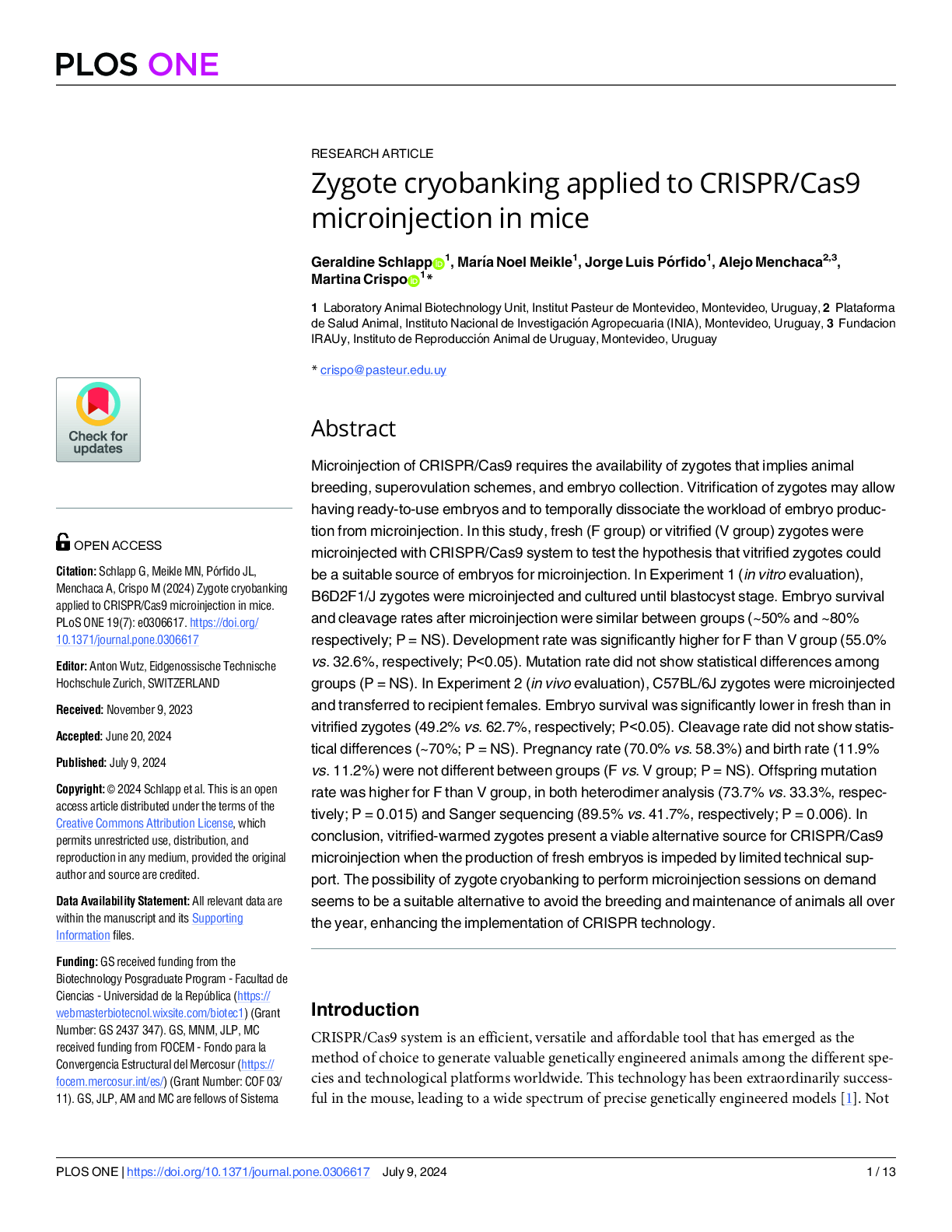ABSTRACT.- Microinjection of CRISPR/Cas9 requires the availability of zygotes that implies animal breeding, superovulation schemes, and embryo collection. Vitrification of zygotes may allow having ready-to-use embryos and to temporally dissociate the workload of embryo production from microinjection. In this study, fresh (F group) or vitrified (V group) zygotes were microinjected with CRISPR/Cas9 system to test the hypothesis that vitrified zygotes could be a suitable source of embryos for microinjection. @ Schlapp et al.
0
1932-6203

64858
null; ANIMALS; CRYOPRESERVATION; PLATAFORMA DE INVESTIGACIÓN EN SALUD ANIMAL - INIA; Mutation rate; Embryo Transfer; Microinjection; Fertility Preservation; CRISPR/Cas9; CRISPR-CAS9 system.
Series
PLos ONE, 2024, Volume 19, Issue 7, e0306617. https://doi.org/10.1371/journal.pone.0306617 -- OPEN ACCESS.
